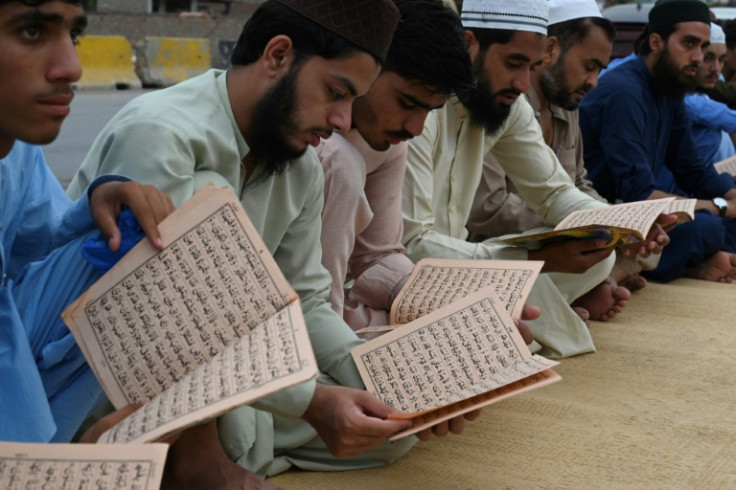
The Michaela Community School in Brent, North London, has been hit with legal challenges over its religious rules and regulations.
The discriminatory accusations have been put against the Michaela Community School Trust, the school's governing body.
A Muslim student, who must remain anonymous for legal reasons, slammed the school for being discriminatory to those who are entitled to a religious space.
Despite the pupil's identity being hidden, British High Court Judge Justice Linden decided that the school and its headteacher could be identified.
Linden also ordered that the hearing should be held in public.
The lawyer representing the school, Jason Coppel KC opposed the call for the school and its headteacher to be publicly identified.
Reporting on the ongoing case risks giving "rise to a real and immediate risk of harm to the headmistress, other members of the school staff [and] potentially pupils at the school", while increasing "threats of violence".
The publicity could also incite "false" allegations of Islamophobia, Coppel KC added.
While addressing a judge at the High Court, the student's lawyers claimed that "the kind of discrimination makes religious minorities feel alienated from society".
According to the lawyers, the ban on prayer for all religious pupils "uniquely" affects Muslim students who are obligated to pray five times a day.
The High Court also heard that the school's prayer ban was only put in place to "preventing Muslims from praying because their prayer by nature has a ritualised nature rather than being internal".
The case is set to continue throughout the week, being heard at the Royal Courts of Justice in London.
The school, which was previously named Britain's strictest education facility, is arguing against the legal action and claims that it is run with a secular attitude to all religions.
With students unable to bring in prayer mats, the school faced abuse and harassment from passers-by who spotted a group of Muslim students kneeling on their coats and conducting their religious practices in the playground.
The Michaela Community School would never prevent a Christian student from silently praying in the playground, the pupil's lawyers recognised.
According to Sarah Hannett KC, one of the pupil's lawyers, Headteacher Katharine Birbalsingh introduced the religious limitations in March last year but governors reconsidered the decision just months later in May.
The decision to ban prayer on the school's premises was "remarkably poor, littered with factual errors and paid no weight to the serious risk of alienating Muslim students", Hannett KC said.
Hannett KC went on to argue that the student is right to condemn the governing body due to the fact that there was "no consultation of any Muslim pupils, parents or religious organisations prior to taking the decision".
The Michaela Community School Trust is being challenged on three grounds, one relating to a breach of the public sector equality duty.
Under section 19 of the Equality Act, the student and their lawyers are also condemning the governing body for being discriminatory to Muslim pupils and noted that the prayer ban goes against article 9 of the European Convention on Human Rights which has been added to UK laws.
The lawyers went on to tell the High Court that the Muslim pupils were not asking for a prayer room, but were asking for the right to pray for a short period of time during their lunch break and at times required by their faith.
Their prayer time would not interrupt their lessons, the student pleaded.






